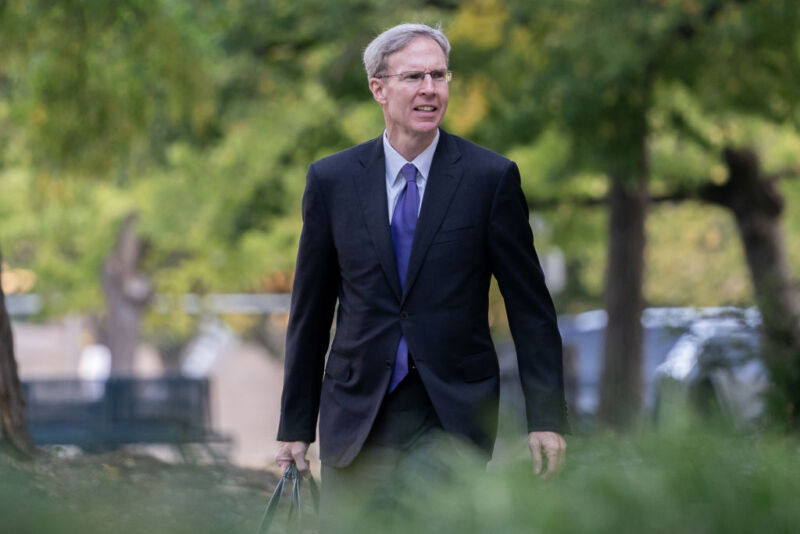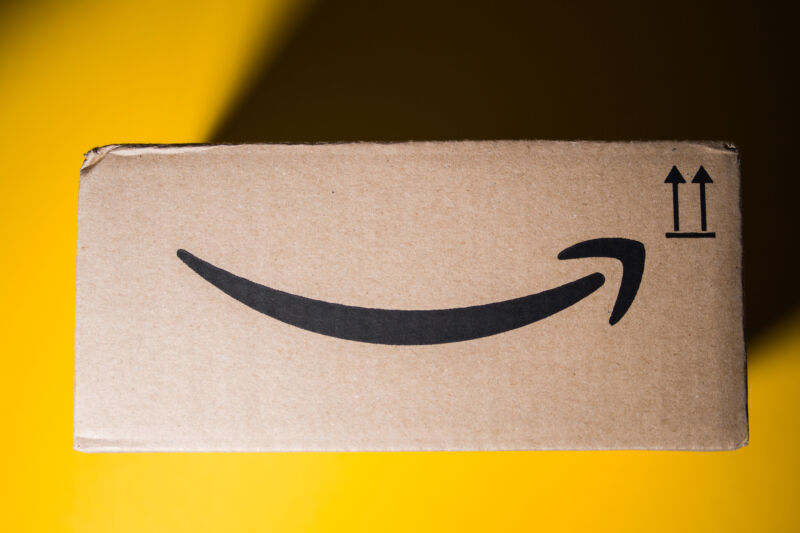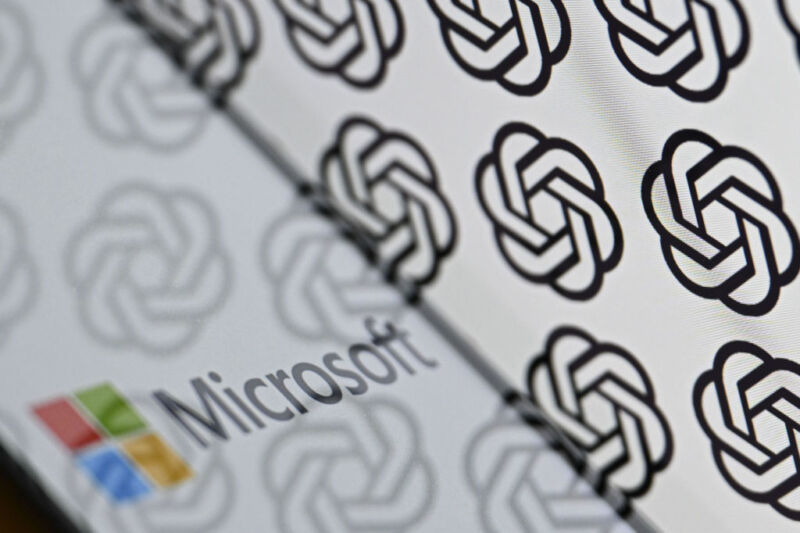Apple deal could have been “suicide” for Google, company lawyer says
Woulda coulda shoulda? —
Judge: What should Google have done to avoid the DOJ’s crosshairs?

Enlarge / John Schmidtlein, partner at Williams & Connolly LLP and lead litigator for Alphabet Inc.’s Google, arrives to federal court in Washington, DC, US, on Monday, Oct. 2, 2023.
Halfway through the first day of closing arguments in the Department of Justice’s big antitrust trial against Google, US District Judge Amit Mehta posed the question that likely many Google users have pondered over years of DOJ claims that Google’s market dominance has harmed users.
“What should Google have done to remain outside the crosshairs of the DOJ?” Mehta asked plaintiffs halfway through the first of two full days of closing arguments.
According to the DOJ and state attorneys general suing, Google has diminished search quality everywhere online, primarily by locking rivals out of default positions on devices and in browsers. By paying billions for default placements that the government has argued allowed Google to hoard traffic and profits, Google allegedly made it nearly impossible for rivals to secure enough traffic to compete, ultimately decreasing competition and innovation in search by limiting the number of viable search engines in the market.
The DOJ’s lead litigator, Kenneth Dintzer, told Mehta that what Google should have done was acknowledge that the search giant had an enormous market share and consider its duties more carefully under antitrust law. Instead, Dintzer alleged, Google chose the route of “hiding” and “destroying documents” because it was aware of conflicts with antitrust law.
“What should Google have done?” Dintzer told Mehta. “They should have recognized that by demanding locking down every default that they were opening themselves up to a challenge on the conduct.”
The most controversial default agreement that Google has made is a 21-year deal with Apple that Mehta has described as the “heart” of the government’s case against Google. During the trial, a witness accidentally blurted out Google’s carefully guarded secret of just how highly it values the Apple deal, revealing that Google pays 36 percent of its search advertising revenue from Safari just to remain the default search tool in Apple’s browser. In 2022 alone, trial documents revealed that Google paid Apple $20 billion for the deal, Bloomberg reported.
That’s in stark contrast to the 12 percent of revenue that Android manufacturers get from their default deals with Google. The government wants the court to consider all these default deals to be anti-competitive, with Dintzer suggesting during closing arguments that they are the “centerpiece” of “a lot” of Google’s exclusionary behavior that ultimately allowed Google to become the best search engine today—by “capturing the default and preventing rivals from getting access to those defaults.”
Google’s lawyers have argued that Google succeeds on its merits. Today, lead litigator John Schmidtlein repeatedly pointed out that antitrust law is designed to protect the competitive process, not specific competitors who fail to invest and innovate—as Microsoft did by failing to recognize how crucial mobile search would become.
“Merely getting advantages by winning on quality, they may have an effect on a rival, but the question is, does it have an anti-competitive effect?” Schmidtlein argued, noting that the DOJ hadn’t “shown that absent the agreements, Microsoft would have toppled Google.”
But Dintzer argued that “a mistake by one rival doesn’t mean that Google gets to monopolize this market forever.” When asked to explain why everyone—including some of Google’s rivals—testified that Google won contracts purely because it was the best search engine, Dintzer warned Mehta that the fact that Google’s rivals “may be happy cashing Google’s checks doesn’t tell us anything.”
According to Schmidtlein, Google could have crossed the line with the Apple deal, but it didn’t.
“Google didn’t go on to say to Apple, if you don’t make us the default, no Google search on Apple devices at all,” Schmidtlein argued. “That would be suicide for Google.”
It’s still unclear how Mehta may be leaning in this case, interrogating both sides with care and making it clear that he expects all his biggest questions to be answered after closing arguments conclude Friday evening.
But Mehta did suggest at one point today that it seemed potentially “impossible” for anyone to compete with Google for default placements.
“How would anybody be able to spend billions and billions of dollars to possibly dislodge Google?” Mehta asked. “Is there any real competition for the default spot?”
According to Schmidtlein, that is precisely what “competition on the merits” looks like.
“Google is winning because it’s better, and Apple is deciding Google is better for users,” Schmidtlein argued. “The antitrust laws are not designed to ensure a competitive market. They’re designed to ensure a competitive process.”
Proving the potential anti-competitive effects of Google’s default agreements, particularly the Apple deal, has long been regarded as the most critical point in order to win the government’s case. So it’s no surprise that the attorney representing state attorneys general, Bill Cavanaugh, praised Mehta for asking, “What should Google have done?” According to Cavanaugh, that was the “right question” to pose in this trial.
“What should they have done 10 years ago when there was a recognition” that “we’re monopolists” and “we have substantial control in markets” is ask, “How should we proceed with our contracts?” Cavanaugh argued. “That’s the question that they answered, but they answered it in the wrong way.”
Seemingly if Google’s default contracts posed fewer exclusionary concerns, the government seems to be arguing, there would be more competition and therefore more investment and innovation in search. But as long as Google controls the general search market, the government alleged that users won’t be able to search the web the way that they want.
Google is hoping that Mehta will reject the government’s theories and instead rule that Google has done nothing to stop rivals from improving the search landscape. Early in the day, Mehta told the DOJ that he was “struggling to see” how Google has either stopped innovating or degraded its search engine as a result of lack of competition.
Closing arguments continue on Friday. Mehta is not expected to rule until late summer or early fall.
Apple deal could have been “suicide” for Google, company lawyer says Read More »










